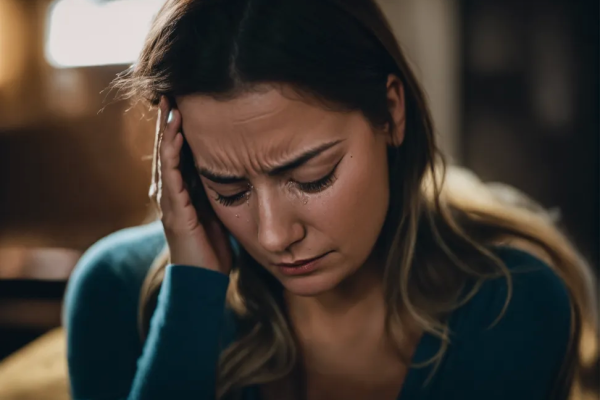
Mental health issues affect millions of people globally. While professional treatment is often necessary, developing positive coping skills can greatly improve mental wellbeing. This comprehensive guide covers evidence-based coping strategies to reduce anxiety, depression, stress, and more.
Understanding Coping and Mental Health
Coping refers to the behavioral and psychological efforts we make to master, reduce or tolerate stress or conflicts. Positive coping skills are methods that help us effectively manage emotions, thoughts, and behaviors related to mental health issues. Research shows that coping abilities directly impact conditions like anxiety, depression, addiction, eating disorders, PTSD and more.
Benefits of Healthy Coping Skills
When practiced consistently, healthy coping skills provide many benefits:
– Reduce intensity & frequency of anxiety, depression, anger, etc
– Improve self-esteem and emotional resilience
– Enhance overall life satisfaction and happiness
– Strengthen relationships and social connections
– Prevent development of mental health disorders
– Aid recovery in those with existing clinical conditions
Conversely, negative coping strategies like avoidance, rumination, substance abuse and social isolation tend to worsen mental health over time. Making positive coping a habit is key for both relieving acute distress and long-term wellness.
Coping Skills To Reduce Anxiety
Anxiety disorders like generalized anxiety, social anxiety, panic attacks and phobias are highly prevalent today. Practicing regular anxiety coping skills can reduce excessive fear, worry, avoidance and distress.
Deep Breathing
Also called diaphragmatic breathing, this technique stimulates the body’s relaxation response. Deep breathing increases oxygen, lowers blood pressure and heart rate, and releases calming neurotransmitters.
**How-to:** Inhale slowly from the diaphragm, feeling the belly expand. Exhale slowly pushing out all leftover air. Repeat for 2-5 minutes daily and whenever anxious. Apps like Calm provide guided instructions.
Progressive Muscle Relaxation
This involves systematically tensing and relaxing muscle groups to reduce physiological aspects of anxiety. Studies confirm PMR meaningfully decreases anxiety symptoms within 1 month.
**How-to:** Tense each major muscle group for 5 seconds, then relax for 30 seconds. Repeat the cycle for 10-15 minutes daily. Apps provide step-by-step guidance.
Meditation
Meditation comes in many forms but most teach focused attention on something neutral like the breath. Meditating for just 8 weeks can rewire the brain to reduce anxiety, emotional reactivity and stress.
**How-to:** Sit comfortably and pick a simple focus point, often the breath. Gently return attention to the focus point whenever the mind wanders. Start with 5 minutes daily. Popular apps like Headspace provide structured learning.
Coping Skills for Depression
Coping strategies for depression aim to elevate mood, motivation and vitality despite low energy and negative emotions. Techniques should activate both body and mind.
Exercise
Studies reveal exercise works as effectively as antidepressants for mild to moderate depression. Just 30 minutes per day of walking, yoga, weights, etc. can significantly improve mood within 6-8 weeks.
**How-to:** Choose enjoyable cardio and strength training exercises. Work closely with your healthcare provider to find sustainable physical activities at the right intensity level.
Structured Scheduling
Depression often interrupts regular routines leading to disconnectedness and isolation. Structured scheduling combats this by deliberately planning meaningful activities into each day and week.
**How-to**: Make dated to-do lists with a mix of necessary tasks and pleasurable hobbies. Schedule social activities and physical exercise as well. Use apps like Google Calendar to organize and remind.
Gratitude Practice
Grateful thinking enhances mood, relationships and sleep quality. Keeping a gratitude journal or regularly reflecting on “3 good things” trains the brain to focus less on negatives.
**How-to:** Jot down 3-5 things you feel grateful for daily including big and small. Thank supportive people often. Spend time savoring pleasurable moments rather than rushing through.
Stress Management Techniques
Unmanaged chronic stress can damage health and worsen anxiety, depression, insomnia, addiction and more. Reducing stress is vital for mental wellbeing.
Time Management Skills
Poor time management often increases stress since people struggle balancing work, family, health and more. Learning organization skills allows you to use time more intentionally.
**How-to**: Set clear priorities, make realistic to-do lists, schedule commitments in a calendar app, say no to nonessential tasks and delegate when possible.
Somatic Awareness
Also called body scanning, this technique builds conscious awareness of stress signals in the body. Catching symptoms early allows quicker action to relieve tension.
**How-to:** Lie down and slowly scan attention through every body part from head to toes noticing any tension, pain or discomfort. Breathe into tight areas. Practice for just 5-10 minutes daily.
Fun Hobbies
Hobbies help distract from worries and release feel-good chemicals in the brain. Leisure activities that tap into creativity or social connections are especially helpful for stress resilience.
**How-to**: Explore low-cost hobbies like cooking, live music, hiking, photography, dance classes, book clubs, community service, gardening, arts and crafts. Aim for regular hobby practice.
Better Sleep Hygiene
Mental health issues strongly correlate with sleep disturbances. Poor sleep exacerbates mood problems while improving sleep quality enhances wellbeing. Use sleep hygiene strategies to get restorative rest.
Wind Down Routines
Calming activities before bed soothe nervous system arousal from the day’s stress. This cues the body to prepare for sleep.
**How-to:** Develop regular routines like a warm bath, light stretches, journaling worries or soft music. Unplug electronics 30-60 minutes before bed.
Sleep Environment
A relaxing bedroom sanctuary encourages better slumber. The ideal sleep space is cool, dark and distraction-free.
**How-to:** Invest in blackout curtains, an eye mask, white noise machine, layered bedding and decluttering for a simpler space.
Sleep Consistency
Inconsistent sleep schedules confuse the body’s sleep-wake regulation leading to disruption. Experts recommend standardizing wake-up times within an hour even on weekends.
**How-to**: Determine the best bed and wake times for your schedule then use diligent routines to regulate the circadian rhythm. Leverage apps like Sleep Cycle to track patterns.
Healthy Social Support
Social support builds resilience against mental health symptoms in multiple studies. Close relationships ease burdens through caring listening and guidance plus opportunities for belonging, laughter and collaboration.
Identify Your Support Network
Reflect on supportive people in your life like family, friends, co-workers, clergy members or instructors. Consider strengthening neglected connections. Seek new communities aligned to your interests.
Give and Receive Support
Relationships thrive through reciprocity. Balance sharing your own struggles or achievements with generous listening without judgement as loved ones do the same.
Outsource Challenges
Ask trusted members of your support network to assist with tasks you struggle concentrating on like driving errands, filling out paperwork, cleaning or childcare. Receive this help openly. Offer your expertise in their areas of need too.
When to Seek Therapy
While coping skills are extremely worthwhile, some mental health challenges do require professional treatment plans. Experienced family doctors, psychiatrists, psychologists and licensed therapists correctly diagnose conditions and provide customized treatment through modalities like CBT, DBT, EMDR and medications. If you experience:
– Thoughts of self-harm
– Mania, delusions or hallucinations
– Difficulty working, parenting or functioning
– Worsening symptoms despite self-help
– Substance abuse or addiction
Reach out to your doctor or a mental health hotline. With appropriate treatment and daily coping skills practice, most people can achieve stable remission of anxiety, depression, PTSD and other disorders. Support groups also aid the journey.
Putting It All Together
Managing mental health requires an ongoing lifestyle approach rather than quick fixes. Commit to daily coping strategies that fit your symptoms and needs. Combine mind-body techniques for full health. Enlist social support and professional treatment as warranted. With consistent practice, evidence-based coping skills empower lasting wellness and resilience.




